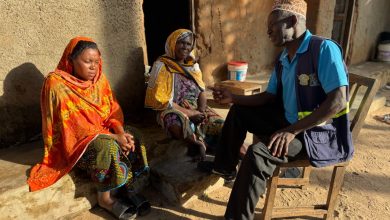Africa’s democracy is not a Western hand-me-down; it’s a living expression of sovereignty

MOROGORO: THERE’S a certain irony in the way Western critics still speak to Africa, as if time has stood still since the colonial age.
Every few months, a letter, a declaration, or a solemn statement emerges from some European chamber, purporting to “express concern” over democracy in an African country.
It is dressed in the fine language of human rights and rule of law, but beneath that velvet rhetoric lies something uncomfortably familiar — a sermon from the pulpit of paternalism.
The latest round of criticism directed at Tanzania follows this old script. The letter raises allegations about supposed abductions and calls for the release of political figures, as though the country’s own legal institutions were incapable of addressing complex cases in line with due process.
Blindly, the signatories of this letter ignore the fact that Tanzania maintains strong bilateral relations with numerous European nations built on mutual respect and cooperation.
By overlooking these established diplomatic ties and the personal relationships grounded in economic partnerships and cultural exchange, the authors run the risk of being pretentious.
What is striking is how effortlessly such missives overlook the fact that these matters are being handled by law enforcement and judicial authorities within Tanzania’s constitutional framework. It is as if the West cannot imagine an African nation capable of applying its own laws without foreign oversight.
Yet, when one looks closer, this “concern” begins to dissolve into contradiction. The same continent that imprisons Catalan leaders for daring to hold a referendum now dares to lecture Tanzania on democratic conduct.
The hypocrisy would be amusing if it were not so tiring. What we are witnessing is what I call Primitive Solidarity, the instinctive, unspoken alliance among Western actors to protect their own image of moral infallibility.
When one of them errs, the others rally around to reinforce the myth of their collective righteousness. But when an African nation, navigating the difficult waters of self-governance, asserts its sovereignty, these same voices chorus with indignation. The assumption, of course, is that democracy in Africa can only be legitimate when it mirrors Europe’s own reflection.
But democracy is not a photograph to be duplicated; it is a conversation rooted in history and soil. Tanzania’s political order was not imposed from foreign blueprints; it is the product of struggle, dialogue, and ujamaa, of reconciling tribal, religious, and generational identities into a unified national rhythm. Julius Nyerere understood this deeply.
He warned that true independence would mean little if Africans merely exchanged colonial governors for foreign advisers.
“We must think for ourselves,” he said, “and govern ourselves in our own way.” Those words remain our compass.
What the West forgets, or refuses to learn, is that Africa’s democracy grows differently because it is planted in different ground. Our politics carry the memory of survival, the art of consensus, and the wisdom of restraint.
Tanzanians have built institutions cautiously, balancing stability with freedom, dialogue with dissent. Mistakes are made, yes, as they are in every democracy, but they are ours to correct, not Europe’s to supervise.
ALSO READ: Multipolar word demands new African strategy for win-win benefits
And yet, the paternal instinct persists. This is what psychologists might call the Saviour Syndrome, the conviction that the West must rescue others from their own supposed inadequacies. It’s a comforting illusion, really: the idea that Europe’s moral duty is to “help” Africa, to save it from itself.
Nonetheless, this syndrome conceals another truth: it is easier to preach salvation than to confront one’s own contradictions. How can a continent that tears itself apart over immigration, populism, and inequality still claim to be the world’s custodian of democracy?
Tanzania, like every sovereign nation, must be allowed to handle its internal debates without being turned into a stage for moral theater. To impose foreign judgment upon domestic processes is not solidarity; it is intrusion disguised as virtue.
Time and again, Tanzanian institutions have resolved difficult cases, electoral disputes, corruption allegations, even sensitive human-rights matters, through lawful mechanisms, not by bending to foreign pressure. Justice here may move at its own pace, but it moves, guided by law and shaped by the consent of its people.
Africans have grown weary of this masquerade, the annual reports, the human-rights scorecards, the conditional loans dressed up as “development assistance.” Behind every act of Western benevolence lies an assumption: that we are perpetual pupils, never equals, forever in need of tutoring. And here lies the tragedy of what I call the Imposter Syndrome, not ours, but theirs. Western institutions, so unsure of their relevance in a changing world, project their insecurity outward.
They must constantly prove their virtue by finding fault elsewhere. They cannot admit that democracy, in its essence, is not theirs to define. So, they fashion Africa into a mirror of their anxieties, a place where they can replay their moral dramas and feel righteous again.
Tanzania, to them, becomes a metaphor rather than a nation. Its leaders are symbols, not people; its institutions are case studies, not living systems. But for us, Tanzania is not an abstraction. It is a society of real men and women who wake up each morning to work, pray, debate, build, and dream.
Its democracy may not conform to foreign templates, but it breathes, it evolves through its own contradictions. The presumption that it needs external correction is not just arrogant; it is anti-democratic at its core.
History also shows us that this Western drive to control moral stories is cyclical. During slavery, Africans were called savages in need of salvation. During colonial times, they were seen as children needing civilization. Now, in the era of democracy and human rights, they are viewed as lifelong students who need supervision. The words change, but the attitude stays the same. It’s still a lecture, quieter now, more refined, but a lecture just the same.
Andrew Mwenda once said that the West’s biggest export to Africa is its moral arrogance, the belief that every African problem is caused by the West not acting quickly enough. It’s the same arrogance that drives endless conferences on “good governance,” unsolicited advice about elections, and righteous outrage when African leaders refuse to comply. Western media, in turn, reinforces this myth by constantly depicting Africa as a continent of crises, poor, corrupt, unstable, a perfect setting for a hero in a white suit.
But no hero is coming, and truthfully, none is needed. Tanzania’s democracy endures because it belongs to Tanzanians. It may be noisy, imperfect, even untidy at times, but it is alive — rooted in the country’s own traditions of consensus, patience, and dialogue. Democracy should never be judged by how closely it imitates Western institutions, but by how faithfully it serves the people it represents. Ours grows through mazungumzo — conversation, not command; through community, not confrontation; through reconciliation, not humiliation.
If Europe truly believed in democracy, it would respect the diversity of how it’s practiced. Yet too often, it insists on one moral blueprint for all, a standard that erases history, culture, and context. When Europe enforces its own laws firmly, it’s applauded for defending constitutional order. But when an African nation does the same, it’s scolded for repression. That isn’t morality; it’s hypocrisy dressed as virtue.
The real question is why Africa still accepts being spoken to this way. Perhaps it’s our politeness, or the hope to be understood. But dignity must, at some point, speak louder than diplomacy. Tanzania doesn’t need permission to govern itself. Our democracy is not fragile glass; it is forged iron, shaped by struggle, strengthened by experience, and capable of standing on its own.
Nyerere said it best: “No one has the right to tell other people how to organize their society.” That is not defiance, it is dignity. So, when the next Western “concern” arrives, let us smile politely and remember: sovereignty is not arrogance; it is maturity.
No one has the right to tell other people how to organize their society, it is dignity





